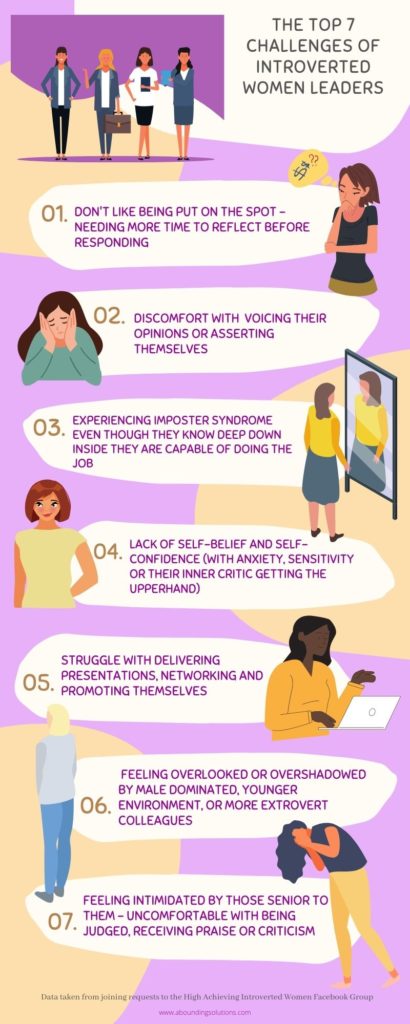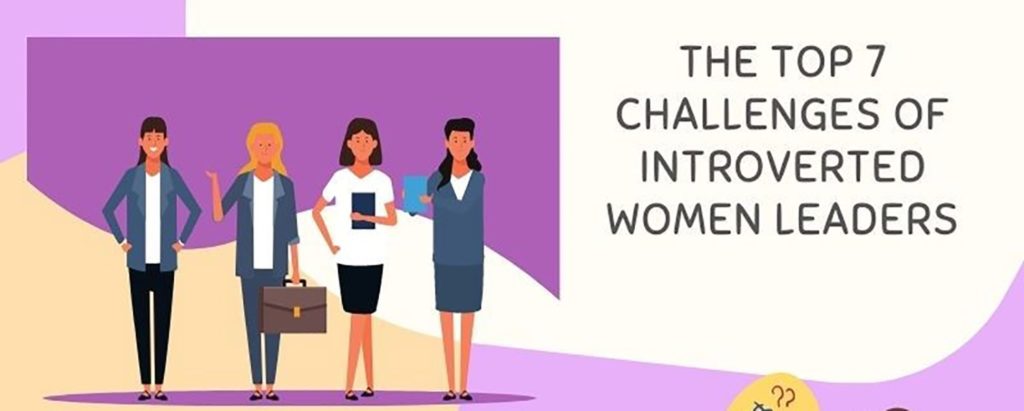When people request to join my Facebook group for introverted women leaders, I ask them what their biggest challenges are as leaders. We analysed responses and identified the top 7 challenges that they said they faced.
Whilst the number of responses in no way reflects the total number of introverted women leaders in the world, or even the 87,000 plus of you subscribed to my LinkedIn newsletter (the group has 600 plus members), the responses are reflective of issues my clients have when they come to me for coaching, the women that attend my workshops and webinars, and those of you who comment on my articles or send me messages and emails.
The key to being impactful in the boardroom is to be a leader of influence. Mastering these challenges moves you towards leading with that confidence, influence, and impact.
The challenges are not in any specific order, and this week I’ll address number one. Over the coming months I will address the other six.

DON’T LIKE BEING PUT ON THE SPOT, NEEDING MORE TIME TO REFLECT BEFORE RESPONDING
When it comes to situations and environments that are high in external stimulation, extroverts find it easier to respond than introverts. The reason being is that introverts are said to have higher levels of cortical arousal than extroverts, namely that our brains are naturally more highly aroused and we process more sensory information from our surroundings.
This means that overly stimulating environments can have a draining effect on people who are introverted. You may feel like you want to disconnect from the meeting and go quiet. To those who don’t understand this, it can come across as being disengaged, lacking confidence, or even rude. When put on the spot in a meeting, with all eyes on you, it can be overstimulating, and you need to be able to process your thoughts.
People who are extroverted on the other hand have lower levels of cortical arousal which means they can take more external stimulation. Being put on the spot in that way and thinking of a quick response may be less of an issue for them.
Introverts are said to have larger, thicker grey matter in the part of their brains that are linked to decision making. Whereas extroverts have thinner grey matter in that same area. This suggests that introverts need more brain power for abstract thought.
Here’s what can help
Knowing yourself and how you naturally respond when put on the spot, means you can put yourself in the best possible position to give as good a response as you can. Here are some of the things you can do to help with this:
- Preparation in advance of meetings
- Not over worrying
- Buying time
- Clarification of what is being asked
- Giving your initial thoughts and letting them know you will get back to them if you have anything further to add
How do you respond when put on the spot? What else would you add to this list?
First published on LinkedIn.
If you are an introverted woman and a senior leader and want to increase your confidence, influence and impact, take my free assessment and get a report identifying areas to develop. You can take the assessment here.

